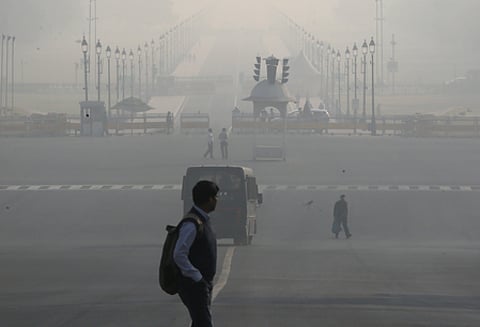

Follow TNM's WhatsApp channel for news updates and story links.
The cold wave continues to tighten its grip on Delhi and neighbouring cities, and the residents are getting no relief from the toxic air.
After a slight improvement in pollution levels on Wednesday, air quality deteriorated once again early on Thursday morning.
Most parts of the city recorded an AQI between 350 and 400, falling in the 'very poor' category, while Wazirpur and Bawana slipped back into the 'severe' range. Along with the pollution, rising cold and dense fog have added to the discomfort of the people.
Delhi-NCR has been battling persistent air pollution for nearly a month. Although the last two to three days showed some signs of improvement, leading the Commission for Air Quality Management (CAQM) to withdraw GRAP Stage 3 restrictions with immediate effect on Wednesday evening, the overall air quality continues to remain in the very poor category.
Fresh data released by the Central Pollution Control Board on Thursday showed a renewed spike in pollution levels across the city. Wazirpur and Bawana emerged as the worst-affected locations, with extremely polluted air once again choking the residents.
According to CPCB figures, at 6 a.m., the AQI in Wazirpur stood at 404, while Bawana recorded 403. Other localities also reported poor conditions.
Vivek Vihar recorded an AQI of 395, Jahangirpuri 392, Anand Vihar 386, Narela 386, Burari 368, Chandni Chowk 368, Sonia Vihar 355, and RK Puram 354, all falling under the very poor category.
A thick layer of haze and fog has covered the city since morning, reducing visibility during early hours and again in the evening. Breathing in such an environment is deemed harmful, and health experts warn that prolonged exposure can be dangerous. They advise staying indoors as much as possible and stepping out only when necessary.
Experts also stress the importance of using proper masks outdoors, saying that precautions are essential in such hazardous conditions.